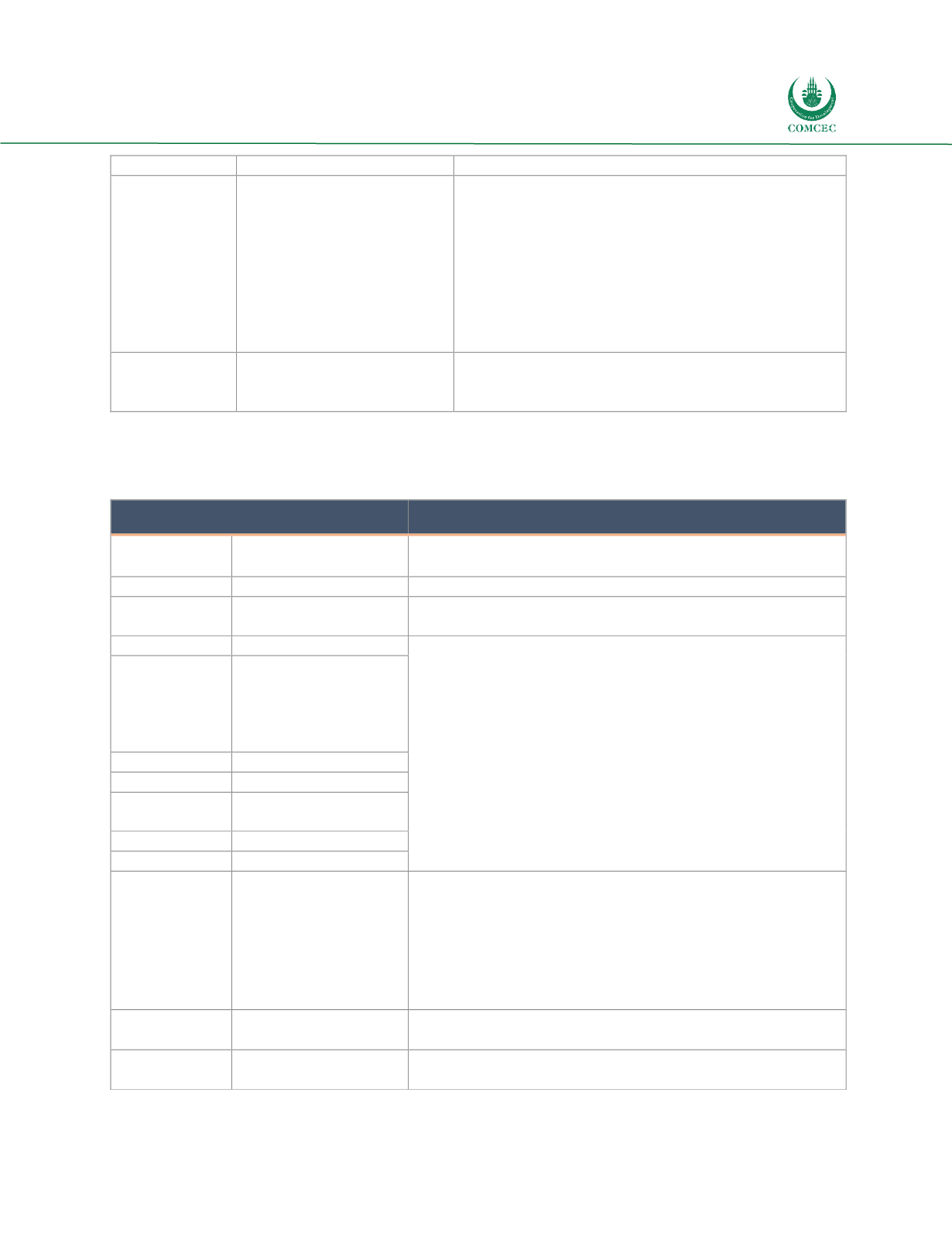

Destination Development and
Institutionalization Strategies
In the OIC Member Countries
157
Strategic
Have a long-term plan in place to manage tourism
resources to avoid negative impact
Monitor product and service quality (through
mystery shopping, visitor surveys, and focus group
discussions)
Produce annual report to provide visibility on how
funding was allocated and to report on performance
against KPIs
Prepare a crisis management plan
Funding
Diversify funding sources. Try to receive a
combination of direct government and funding,
funding from tourism taxes
Source: DinarStandard analysis
Table 35: Recommendations for Countries in the Development Phase (Growing Destination)
DMO Characteristics
Recommendation
Operating
Parameters
Legal Form
Public-Private
Board (stakeholders, community representatives)
Geographic Scope
National, regional and local
Governance
Models
(High centralization –
Low Centralization)
Highly centralized model, with strong emphasis on making
sure interests of stakeholder are represented
Stakeholders
Local tourism industry
Engage through meetings, surveys, social media, e-
newsletters, website
Coordinate collaboration among stakeholders
Create stakeholder committees
Allocate staff to manage stakeholder relations
Balance addressing the needs of different stakeholders,
and avoid favoring one group over the rest.
Public tourism
institutions
(attractions,
recreation facilities,
transport services)
Government bodies
Universities
Professional
associations
Tourists
Local community
DMO
Activities
Marketing
Destination branding and promotion (digital campaigns,
social media, influencer, print, TV ads, PR, fam trips)
Oversee products developed by stakeholders to ensure
adherence to the destination’s brand
Focus on keeping the destination unique
Developed destinations should continue developing
products to rejuvenate their offerings
Operational
Support tourism industry, coordinate stakeholders,
manage visitor experience
Strategic
Control negative impact on tourism resources and manage
overcrowding
















